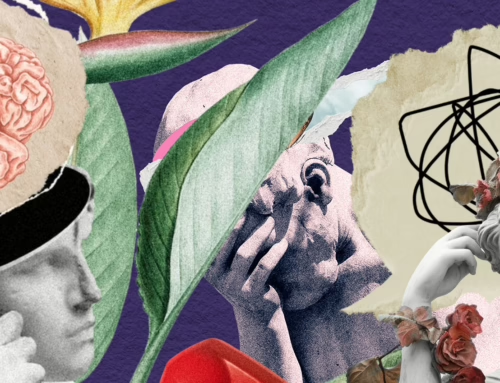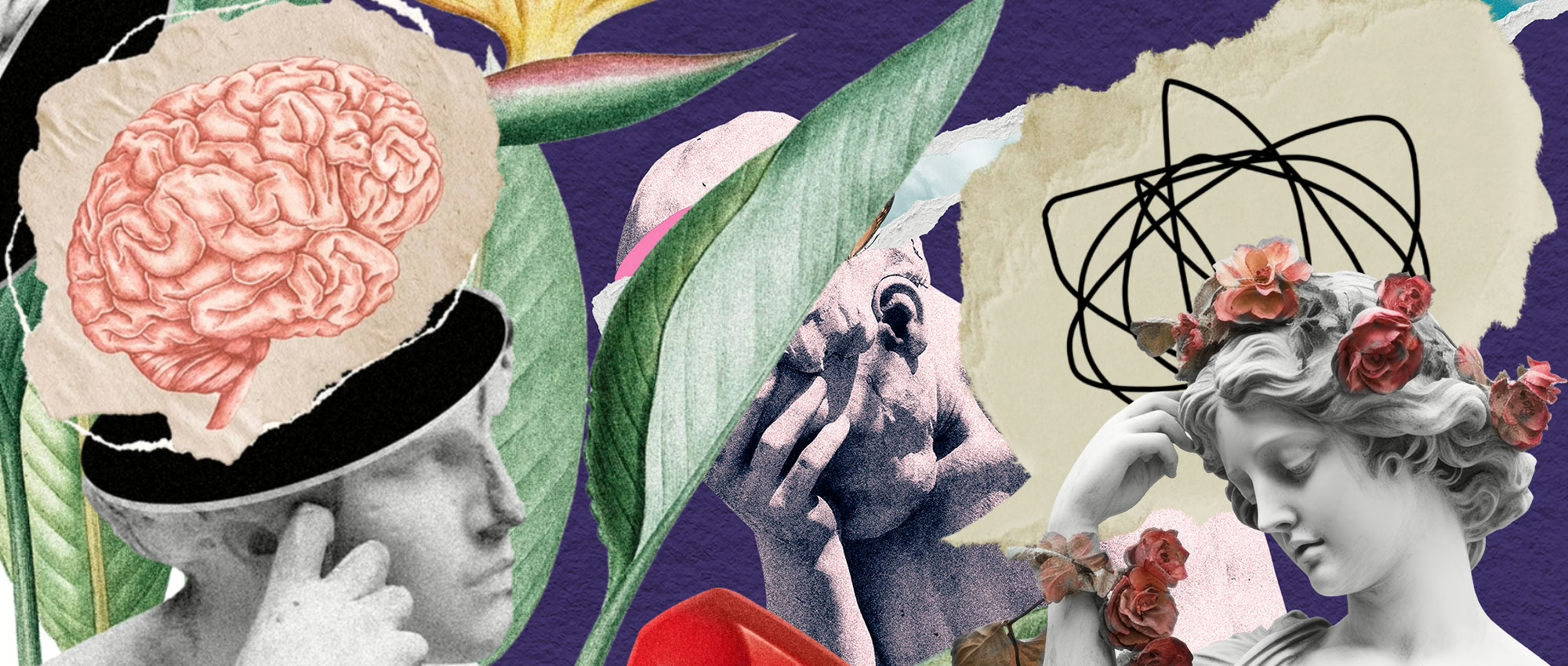Embracing Underconsumption: A Path to Mental Wellbeing
In a world where we are constantly bombarded with messages to consume more—whether it’s food, media, or material possessions—the idea of underconsumption might seem counterintuitive. However, embracing underconsumption can have profound benefits for our mental health. Let’s dive into what underconsumption is and how it can transform your mental wellbeing.
What is Underconsumption?
Underconsumption isn’t about deprivation or living a life of scarcity. It’s about being intentional with what and how much we consume. It’s the practice of consciously choosing to consume less than what is typical or available, focusing instead on quality over quantity. This can apply to various aspects of life, including food, digital media, and material goods.
The Mental Health Benefits of Underconsumption
- Reduced Stress and Anxiety: Constantly striving for more can create a cycle of stress and anxiety. The pressure to keep up with societal standards of consumption can be overwhelming. Underconsumption encourages us to step back, prioritize what truly matters, and let go of the rest. This shift can lead to a significant reduction in stress and anxiety.
- Increased Mindfulness: Underconsumption promotes mindfulness by encouraging us to be present and intentional with our choices. Whether it’s savoring a meal, enjoying a quiet moment, or appreciating the things we already have, this practice fosters a deeper connection with our experiences and surroundings.
- Enhanced Gratitude: When we consume less, we begin to appreciate what we already have. This sense of gratitude can boost our overall happiness and satisfaction with life. Instead of constantly chasing the next best thing, we learn to find joy in the present moment.
- Improved Focus and Clarity: A cluttered environment can lead to a cluttered mind. By reducing the excess in our lives, we create space for clarity and focus. This can enhance our ability to concentrate, make decisions, and engage in creative pursuits.
- Better Physical Health: Underconsumption can also lead to better physical health, which in turn benefits our mental wellbeing. Consuming less processed food and opting for nutritious choices can improve our energy levels, mood, and overall health. Additionally, limiting screen time and engaging in physical activities can enhance our mental and emotional state.
How to Embrace Underconsumption
- Start Small: You don’t need to overhaul your entire life overnight. Begin by identifying one area where you can practice underconsumption. It might be as simple as reducing your social media usage or cutting back on unnecessary purchases.
- Set Intentional Limits: Establish clear, intentional limits for yourself. For example, designate specific times for checking emails or social media, and stick to these boundaries. This can help prevent the feeling of being overwhelmed and improve your mental clarity.
- Practice Mindful Consumption: When making decisions about what to consume, ask yourself whether it aligns with your values and contributes positively to your life. This mindful approach can help you make more intentional choices and reduce impulsive behaviors.
- Focus on Quality: Prioritize quality over quantity in all areas of your life. Whether it’s the food you eat, the clothes you wear, or the media you consume, choosing high-quality options can enhance your overall experience and satisfaction.
- Reflect and Adjust: Regularly reflect on your consumption habits and their impact on your mental health. Be open to making adjustments as needed. This ongoing process of reflection and adaptation can help you maintain a balanced and fulfilling lifestyle.
A New Path to Wellbeing
Underconsumption is more than just a trend; it’s a powerful tool for enhancing our mental health and overall wellbeing. By consciously choosing to consume less, we create space for more meaningful experiences, deeper connections, and a greater sense of peace and satisfaction.
So, take a step back, assess your consumption habits, and consider the benefits of underconsumption. It might just be the key to unlocking a healthier, happier, and more balanced life. Embrace this practice and watch as your mental health flourishes in ways you never thought possible.
Embracing Underconsumption: A Path to Mental Wellbeing
In a world where we are constantly bombarded with messages to consume more—whether it’s food, media, or material possessions—the idea of underconsumption might seem counterintuitive. However, embracing underconsumption can have profound benefits for our mental health. Let’s dive into what underconsumption is and how it can transform your mental wellbeing.
What is Underconsumption?
Underconsumption isn’t about deprivation or living a life of scarcity. It’s about being intentional with what and how much we consume. It’s the practice of consciously choosing to consume less than what is typical or available, focusing instead on quality over quantity. This can apply to various aspects of life, including food, digital media, and material goods.
The Mental Health Benefits of Underconsumption
- Reduced Stress and Anxiety: Constantly striving for more can create a cycle of stress and anxiety. The pressure to keep up with societal standards of consumption can be overwhelming. Underconsumption encourages us to step back, prioritize what truly matters, and let go of the rest. This shift can lead to a significant reduction in stress and anxiety.
- Increased Mindfulness: Underconsumption promotes mindfulness by encouraging us to be present and intentional with our choices. Whether it’s savoring a meal, enjoying a quiet moment, or appreciating the things we already have, this practice fosters a deeper connection with our experiences and surroundings.
- Enhanced Gratitude: When we consume less, we begin to appreciate what we already have. This sense of gratitude can boost our overall happiness and satisfaction with life. Instead of constantly chasing the next best thing, we learn to find joy in the present moment.
- Improved Focus and Clarity: A cluttered environment can lead to a cluttered mind. By reducing the excess in our lives, we create space for clarity and focus. This can enhance our ability to concentrate, make decisions, and engage in creative pursuits.
- Better Physical Health: Underconsumption can also lead to better physical health, which in turn benefits our mental wellbeing. Consuming less processed food and opting for nutritious choices can improve our energy levels, mood, and overall health. Additionally, limiting screen time and engaging in physical activities can enhance our mental and emotional state.
How to Embrace Underconsumption
- Start Small: You don’t need to overhaul your entire life overnight. Begin by identifying one area where you can practice underconsumption. It might be as simple as reducing your social media usage or cutting back on unnecessary purchases.
- Set Intentional Limits: Establish clear, intentional limits for yourself. For example, designate specific times for checking emails or social media, and stick to these boundaries. This can help prevent the feeling of being overwhelmed and improve your mental clarity.
- Practice Mindful Consumption: When making decisions about what to consume, ask yourself whether it aligns with your values and contributes positively to your life. This mindful approach can help you make more intentional choices and reduce impulsive behaviors.
- Focus on Quality: Prioritize quality over quantity in all areas of your life. Whether it’s the food you eat, the clothes you wear, or the media you consume, choosing high-quality options can enhance your overall experience and satisfaction.
- Reflect and Adjust: Regularly reflect on your consumption habits and their impact on your mental health. Be open to making adjustments as needed. This ongoing process of reflection and adaptation can help you maintain a balanced and fulfilling lifestyle.
A New Path to Wellbeing
Underconsumption is more than just a trend; it’s a powerful tool for enhancing our mental health and overall wellbeing. By consciously choosing to consume less, we create space for more meaningful experiences, deeper connections, and a greater sense of peace and satisfaction.
So, take a step back, assess your consumption habits, and consider the benefits of underconsumption. It might just be the key to unlocking a healthier, happier, and more balanced life. Embrace this practice and watch as your mental health flourishes in ways you never thought possible.




